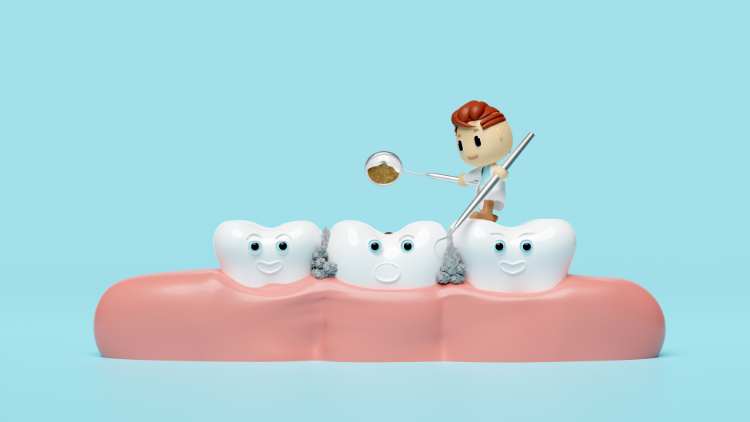
Cavities, also known as dental caries or tooth decay, are one of the most common dental problems affecting people of all ages worldwide. Understanding the underlying causes of cavities is crucial for effective prevention and maintaining optimal dental health. In this blog, we’ll dive into the various factors that contribute to cavity formation and explore how you can protect your teeth from decay.
Understanding Dental Anatomy
To understand cavity formation, it’s essential to have a basic grasp of dental anatomy. Our teeth are composed of several layers, including enamel, dentin, and cementum. Enamel, the outermost layer, serves as a protective barrier against bacteria and acid erosion. Dentin lies beneath the enamel and contains tiny tubules that connect to the nerve of the tooth.
The Role of Dental Plaque
The primary culprit behind cavity formation is dental plaque. Plaque is a sticky, colorless film that forms on teeth, harboring harmful bacteria. When sugars and carbohydrates from food and drinks are consumed, oral bacteria ferment these sugars, producing acids that attack tooth enamel. Over time, this acid production leads to demineralization of the enamel, creating cavities.
Sugar and Carbohydrates
Sugars and carbohydrates play a significant role in cavity formation. Bacteria in dental plaque thrive on sugars, using them as fuel to produce acids. Frequent consumption of sugary foods and drinks provides ample opportunity for bacteria to produce acid, increasing the risk of enamel erosion and cavity development. Limiting sugar intake and practicing moderation are essential for cavity prevention.
Poor Oral Hygiene Habits
Inadequate oral hygiene habits, such as infrequent brushing, flossing, and rinsing, can exacerbate cavity formation. When plaque is not removed regularly, it accumulates on teeth, increasing the risk of acid attack and enamel erosion. Establishing a consistent oral hygiene routine, including brushing twice a day, flossing daily, and using an antimicrobial mouthwash, is crucial for cavity prevention.
Acidic Foods and Beverages
Acidic foods and beverages can also contribute to enamel erosion and cavity formation. Citrus fruits, sodas, sports drinks, and vinegar-based foods contain acids that can weaken tooth enamel over time. While these foods can be enjoyed in moderation, it’s essential to rinse your mouth with water after consuming acidic substances to neutralize acids and minimize their impact on dental health.
Dry Mouth and Saliva Production
Saliva plays a vital role in protecting teeth by neutralizing acids and remineralizing enamel. However, conditions such as dry mouth (xerostomia) can decrease saliva production, increasing the risk of cavities. Certain medications, medical conditions, and lifestyle factors can contribute to dry mouth. Staying hydrated and using saliva-stimulating products can help alleviate dry mouth symptoms and reduce cavity risk.
Dental Anatomy and Genetics
Variations in dental anatomy and genetics can influence cavity susceptibility. Factors such as tooth shape, enamel thickness, and saliva composition may affect an individual’s risk of developing cavities. While genetic factors play a role, maintaining good oral hygiene habits and a healthy diet can help mitigate cavity risk regardless of genetic predispositions.
Age and Lifestyle Factors
Age-related changes in oral health and lifestyle factors can also impact cavity risk. As we age, changes in saliva production, gum recession, and dental work may increase susceptibility to cavities. Additionally, lifestyle habits such as smoking, alcohol consumption, and poor dietary choices can exacerbate cavity formation. Practicing healthy habits and seeking regular dental care are essential for preventing cavities at any age.
Conclusion
Cavity formation is a multifactorial process influenced by various factors, including dental plaque, sugar consumption, poor oral hygiene, acidic foods, dry mouth, dental anatomy, genetics, age, and lifestyle factors. By understanding these underlying causes and implementing preventive measures such as maintaining good oral hygiene, limiting sugar intake, and seeking regular dental care, you can protect your teeth from decay and maintain a healthy smile for years to come. Remember, prevention is key when it comes to cavity prevention, so prioritize your dental health today for a brighter tomorrow. Regain confidence in your smile and contact us today to schedule an appointment.

 Request an Appointment
Request an Appointment